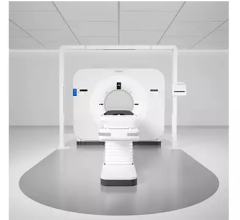
May 25, 2016 — New Mayo Clinic research suggests that many pancreatic cancer patients whose tumors have grown around the pancreas to encompass critical blood vessels are candidates for surgery, even though conventional wisdom has suggested otherwise. The organization has been fine-tuning a protocol to treat this group — which accounts for roughly one-third of pancreatic cancer patients — and in two studies found survival now stretching into years.
The findings were presented at the Pancreas Club and Society for Surgery of the Alimentary Tract annual meetings in San Diego.
“We’re definitely seeing a revolution,” said Mark Truty, M.D., a gastrointestinal surgical oncologist at Mayo Clinic in Rochester, Minn., who is first author of one abstract and senior author of the other. “A lot of this has to do with better chemotherapy drugs and use of what we call multimodal therapy: chemotherapy, radiation and then an aggressive operation. Now we can potentially offer these therapies to patients who previously were told they had no options.”
About 50,000 people are diagnosed with pancreatic cancer each year in the United States. Historically, only about 7 percent of pancreatic cancer patients have lived at least five years after diagnosis.
Because the cancer tends to spread before symptoms appear, it is found early enough to make surgery a clear-cut option in only about 15 percent of patients. In about half of patients, the cancer has spread throughout the body by the time it is diagnosed, ruling out surgery.
In one-third of patients, cancer hasn’t spread through the body, but has grown around veins and arteries in and around the pancreas. For decades, surgery was considered too risky and ineffective to be performed in most of those patients. The Mayo studies chronicle a transformation in treatment for these patients.
In the study presented at the Society for Surgery of the Alimentary Tract annual meeting, researchers analyzed surgical outcomes for the past 25 years among such stage 3 patients who had surgery requiring removal and reconstruction of arteries. They found that most of the operations on this group were performed in the past five years, since the advent of improved chemotherapy and radiation.
Although these surgeries carry more risk than operations not requiring removal and reconstruction of arteries, there appeared to be a significant long-term survival advantage in patients treated with chemotherapy and radiation followed by such aggressive operations. Those who had surgery without chemotherapy or radiation first didn’t do well long-term, while patients who had chemotherapy and/or radiation before surgery did significantly better long-term, the researchers found. Looking at short-term outcomes, they discovered that complication rates have decreased over time.
“All in all, it shows that these patients, who would typically not be offered an operation, can have good short-term and long-term results with the appropriate protocol and treatment sequence,” Truty said.
In the study presented at the Pancreas Club meeting, researchers analyzed modern surgical outcomes for stage 3 patients whose tumors involved blood vessels and who had a specific protocol of chemotherapy, radiation and aggressive surgery.
Eighty patients have now gone through the Mayo protocol with data available for review. The study found that the median survival time after patients complete the protocol is approaching four years, about four times that of patients who do not have surgery. The patients who do even better than that include:
- Those who receive more chemotherapy before surgery;
- People who have a particular tumor marker known as CA 19-9 that returns to normal after chemotherapy; and
- Those whose tumors, when analyzed after removal, are found to have only minimal cancer left.
The study also found that in a majority of patients, computed tomography (CT) scans before surgery showed that their tumors didn’t shrink after chemotherapy. However, when the tumors were removed, it turned out most of the cancer was dead.
“We’re hoping that data from this analysis will now spread to the rest of the country, and now people will have a road map for how to treat these patients and how to choose which patients will benefit from such complex operations,” Truty said. He hopes patients feel a sense of optimism, that there are options.
“Not everyone wants to sign up for these big operations or these long protocols of chemotherapy and radiation. But they have the options available to them to make that educated decision about whether this is something that would benefit them,” Truty said. “We’re offering an additional bit of hope for a pretty substantial number of patients who had previously been ignored.”
For more information: www.mayoclinic.org


 November 04, 2025
November 04, 2025 









